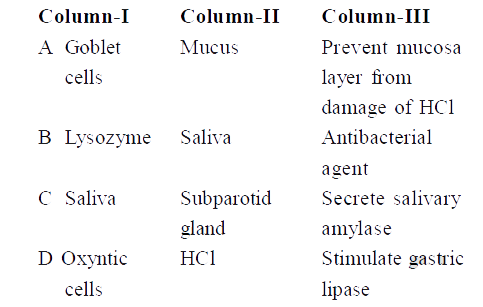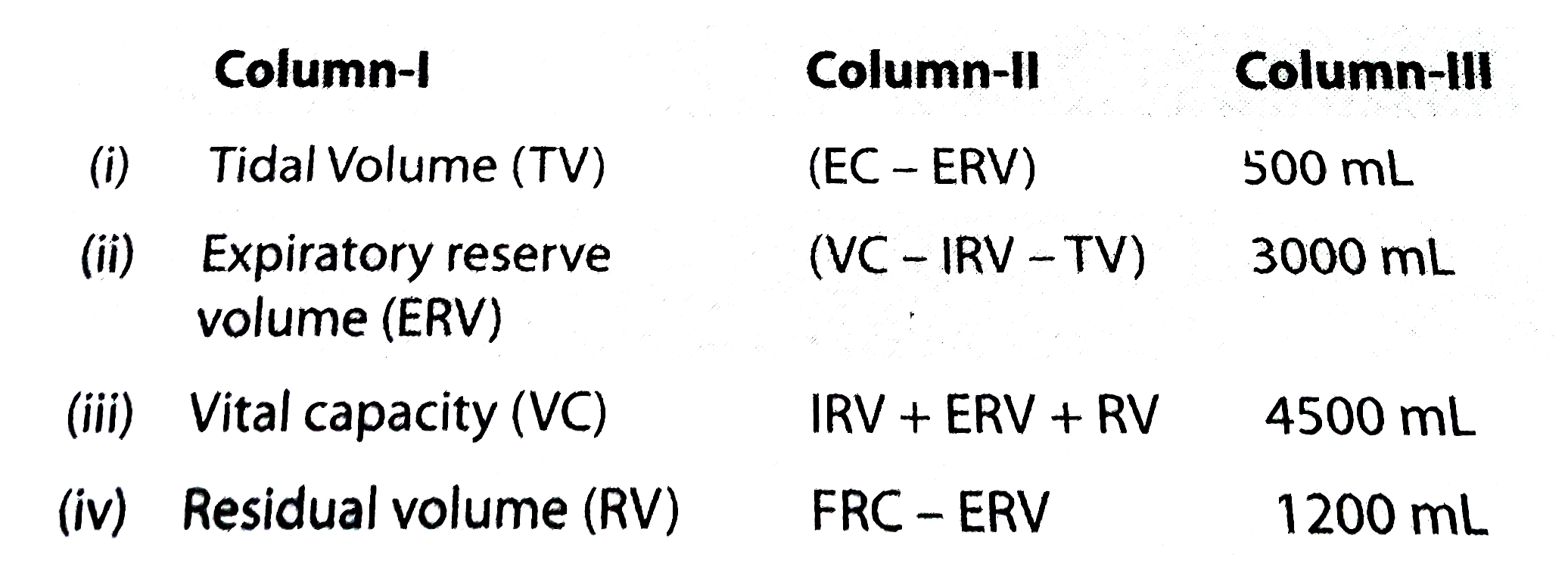Find out the correct match from the following with respect to Protista .
Gonyaulax - chief producers of the ocean
Euglenoids - stiff cellulose plates in the cell wall
Slime moulds - formation of plasmodium
Amoeba - parasiticprotozoan
The correct Answer is:C
To solve the question regarding the correct match with respect to the Protista kingdom, we will analyze each option provided in the question step by step.
Step 1: Understand the Protista Kingdom
The Protista kingdom consists mainly of single-celled eukaryotic organisms. This includes various groups such as protozoans, algae, and slime molds.
Step 2: Analyze the Options
1. Guinalix (Dinoflagellates):
- Dinoflagellates are indeed part of the Protista kingdom. They are known for their role in marine ecosystems and can cause red tides. However, the statement regarding them being the chief producers of the ocean is misleading as diatoms are often referred to as the primary producers in marine environments.
2. Euglenoids:
- Euglenoids are also members of the Protista kingdom. They are characterized by a protein-rich pellicle instead of a rigid cell wall. The statement about having stiff cellulose plates is incorrect as that feature is associated with dinoflagellates.
3. Slime Molds (Plasmodium formation):
- Slime molds are indeed saprophytic protists. They can form a structure called plasmodium under suitable conditions, which can differentiate into fruiting bodies when conditions are unfavorable. This statement is correct.
4. Amoeba:
- Amoeba is a type of protozoan that is heterotrophic and captures prey using pseudopodia. While this description is accurate, it does not provide a specific match to the Protista kingdom as the other options do.
Step 3: Identify the Correct Match
Based on the analysis:
- The correct match is the third option regarding slime molds and their ability to form plasmodium.
Conclusion
The correct match with respect to Protista is Slime Molds (Plasmodium formation).
---
The Protista kingdom consists mainly of single-celled eukaryotic organisms. This includes various groups such as protozoans, algae, and slime molds.
1. Guinalix (Dinoflagellates):
- Dinoflagellates are indeed part of the Protista kingdom. They are known for their role in marine ecosystems and can cause red tides. However, the statement regarding them being the chief producers of the ocean is misleading as diatoms are often referred to as the primary producers in marine environments.
- Euglenoids are also members of the Protista kingdom. They are characterized by a protein-rich pellicle instead of a rigid cell wall. The statement about having stiff cellulose plates is incorrect as that feature is associated with dinoflagellates.
- Slime molds are indeed saprophytic protists. They can form a structure called plasmodium under suitable conditions, which can differentiate into fruiting bodies when conditions are unfavorable. This statement is correct.
- Amoeba is a type of protozoan that is heterotrophic and captures prey using pseudopodia. While this description is accurate, it does not provide a specific match to the Protista kingdom as the other options do.
Based on the analysis:
- The correct match is the third option regarding slime molds and their ability to form plasmodium.
The correct match with respect to Protista is Slime Molds (Plasmodium formation).
Topper's Solved these Questions
Similar Questions
Knowledge Check
Find out the correct match from the following table :
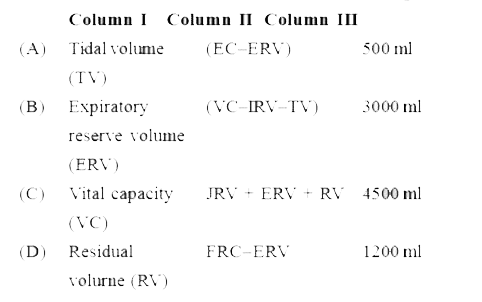 A(i) and (ii)B(i), (iii) and (iv)C(i), (ii) and (iii)D(i) and (iv)
A(i) and (ii)B(i), (iii) and (iv)C(i), (ii) and (iii)D(i) and (iv)Find out the correct match from the following table ?
 A(i), (ii) and (iii)B(ii) and (iv) onlyC(ii) and (iii) onlyD(i), (iii) and (iv)
A(i), (ii) and (iii)B(ii) and (iv) onlyC(ii) and (iii) onlyD(i), (iii) and (iv)Find out the correct matching
AThyroid- Hyperactivity in young children causes cretinismBParathyroid- Secretes parathormone which promotes movement of calcium ion from blood into bones during calcificationCThymus - Starts undergoing atrophy after pubertyDPancreas - Delta cells of islets of Langerhans secrete a hormone which stimulates glycolysis in liver.
Find out the correct match pair
View SolutionFind out the correct match from the following table :−
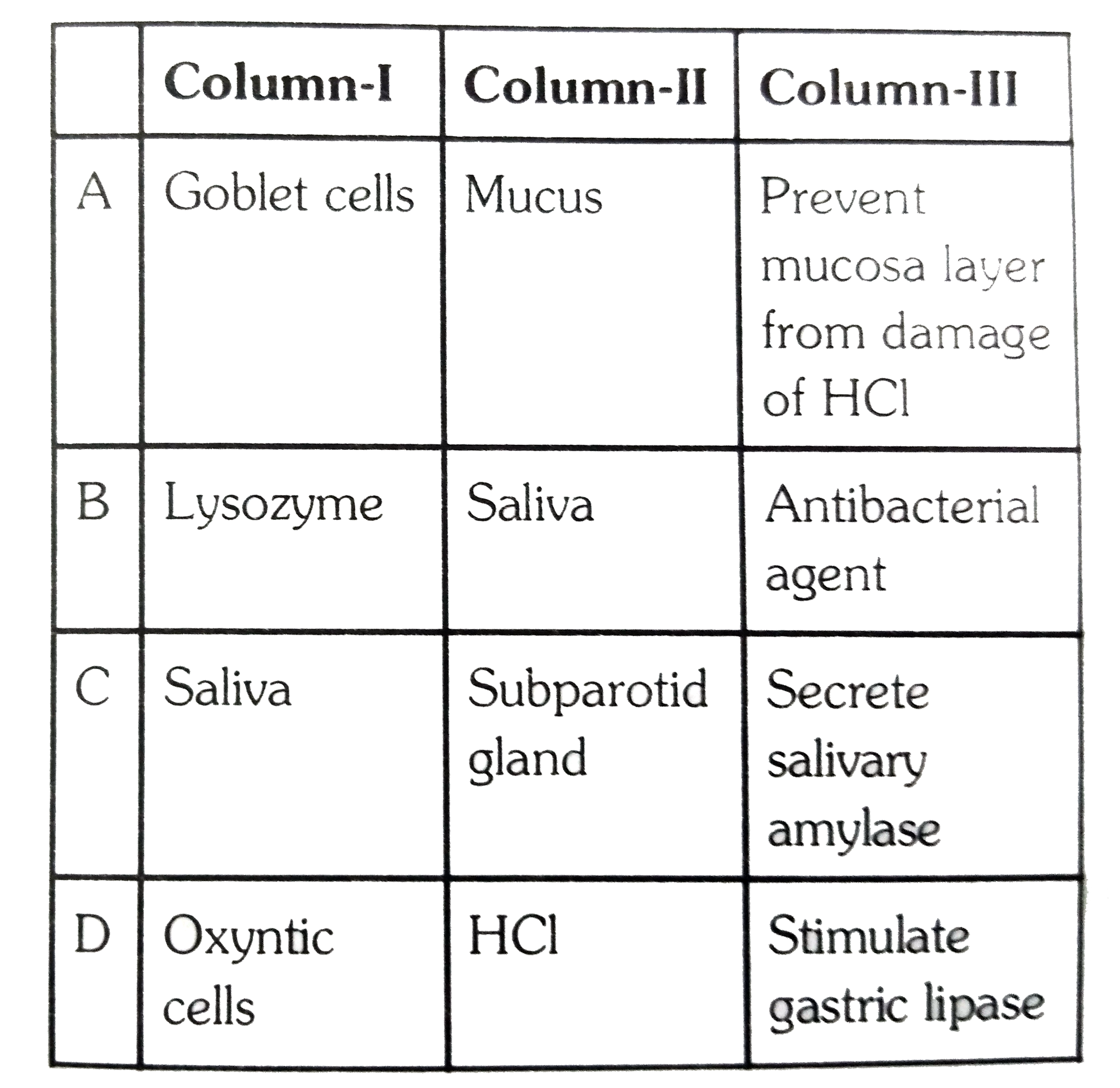
View SolutionFind out the correct match from the following table :−
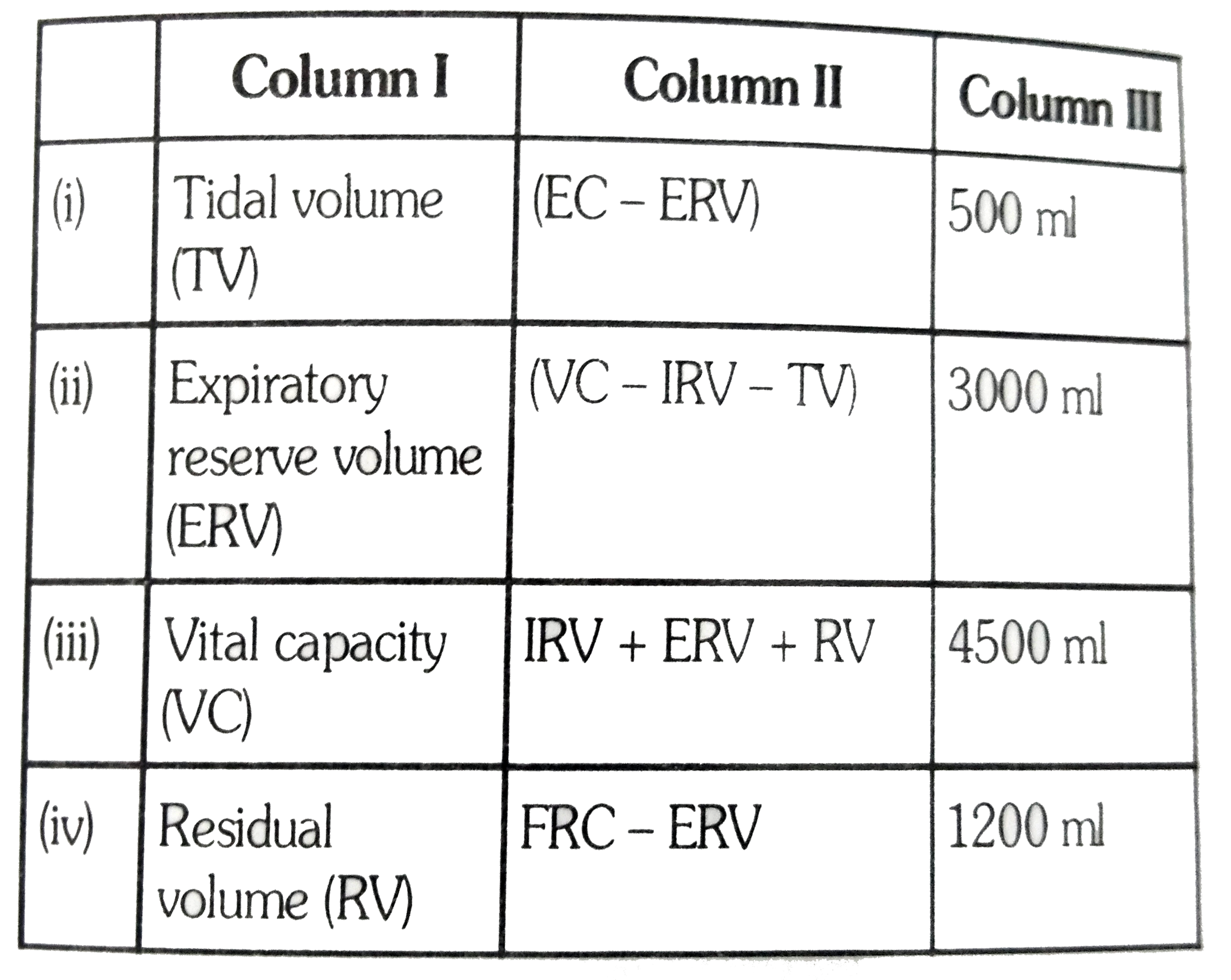
View SolutionFind the correct match from the following table?

View SolutionFind out the correct match from the followign table :−
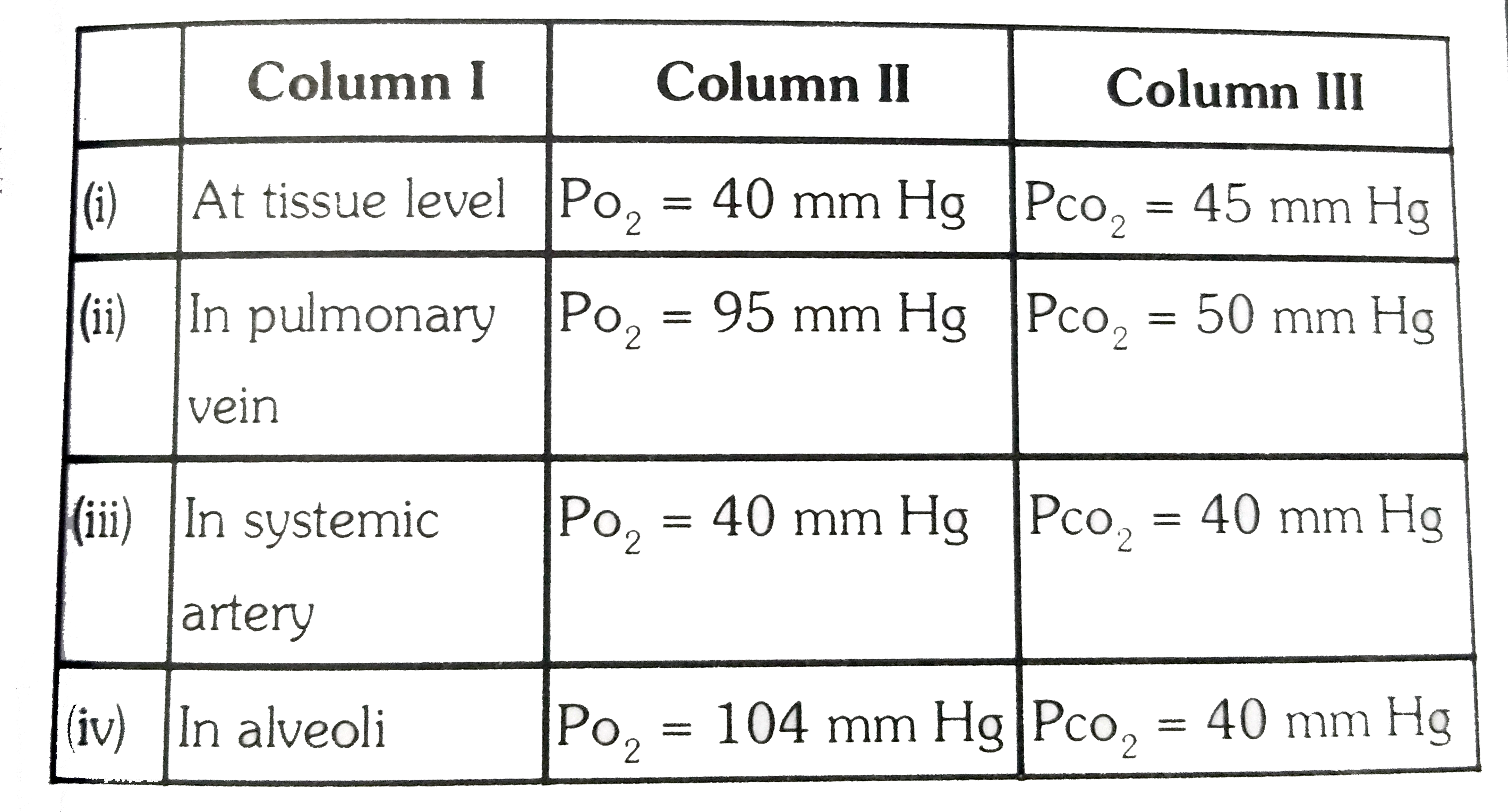
View Solution

